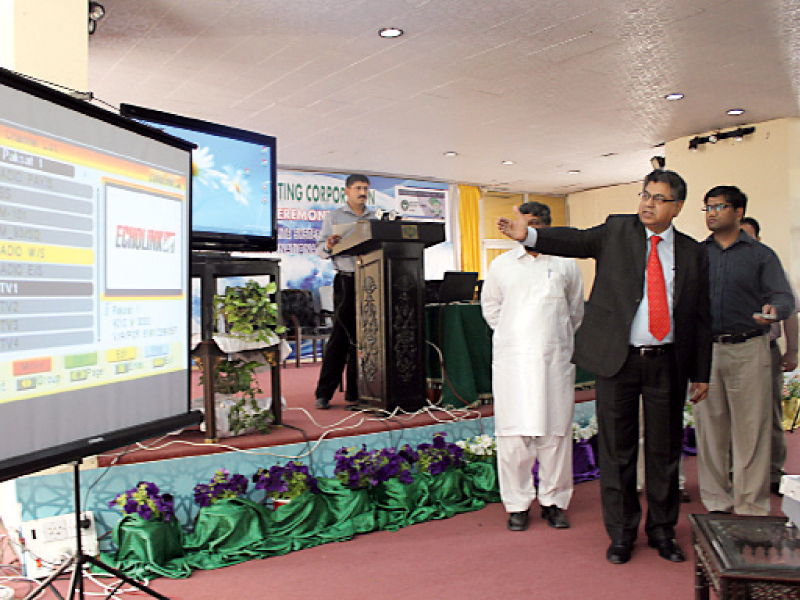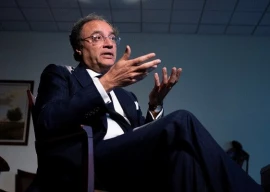
ISLAMABAD:
Radio Pakistan, which has embraced web technology over the past five years, made not one but three new technological leaps on Monday.
Radio Pakistan Director-General Murtaza Solangi inaugurated three projects which would allow the country’s national radio service to report better from outdoor locations, broadcast its world services via the web, and interactively update the public on the upcoming elections.
The projects — a satellite communication system, internet streaming of the radio’s International Services and a dedicated elections website — were launched at the National Broadcasting House in Islamabad.
The satellite communication system includes an earth station located inside the Radio Pakistan building and a digital satellite news gathering (DSNG) mobile van, capable of bidirectional communication and editing.

Ghulam Mujaddid, technical adviser to the director-general, said the DSNG van will improve Radio Pakistan’s reporting from outlying areas.
“Before this, we used to use standard telephony for outdoor communications,” Mujaddid said. “Satellite communication will improve the quality of signals received from the field.”
The DSNG is also capable of sending audio and video feeds from the field directly to a control room in the radio’s headquarters, he said.
Earlier, the international services, which include broadcasts in 11 world languages and an Urdu World Service, were only available on shortwave radio.
Now, thanks to satellite transmission, people in 38 countries from South Asia, the Middle East, Africa and Europe can use receivers to tune in to these services. The services are also available on the internet, where listeners can stream and listen, just like radio stations in the West.
Solangi said the satellite communication system would help Radio Pakistan save Rs7 million of its costs of running generators for shortwave communications and of leasing broadcast media from the Pakistan Television.
Radio Pakistan’s dedicated elections website will provide interactive constituency maps, election-related news, code of conducts and elections results among other things, Solangi said.
“The elections web portal will serve as a resource for journalists and researchers reporting on and monitoring the elections,” he said.
During his address, Solangi also listed the achievements of the radio service. digitised old radio archives and established a web presence through its website.
“Today, we have listeners of Radio Pakistan, readers who visit our website and even viewers who watch our online video content,” Solangi said. “We are not traditional radio anymore, now we are emerging as a multimedia company.”
Published in The Express Tribune, April 23rd, 2013.









































1713521455-0/Untitled-design-(9)1713521455-0-270x192.webp)





















COMMENTS (1)
Comments are moderated and generally will be posted if they are on-topic and not abusive.
For more information, please see our Comments FAQ